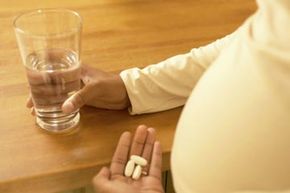Spanish explorer Ponce de León may never have found the fabled fountain of youth, but it's possible we've had a natural time eraser at our disposal all along. DHEA, known scientifically as dehydroepiandrosterone, is a hormone in the human body -- and also recreated in supplement form -- that has the potential to help slow, treat or reverse many of the conditions that can occur with age, such as Alzheimer's disease, muscle loss, nerve degeneration, osteoporosis, heart disease and symptoms of menopause [source: WebMD]. Scientists now believe it may also help infertile women increase their odds of conceiving [source:Rice].
While a woman in her childbearing years certainly doesn't fall into the category of old age, her reproductive system is getting older quickly. Most women only have about 3 percent of their ovarian eggs left by the time they hit age 40 [source: Fortuna, et. al]. And sometimes young women can experience a reduced number of eggs, too. This is usually due to premature ovarian aging (POA), which shortens the fertility window and has a similar effect as diminished ovarian reserve (DOR) caused by normal aging.
Advertisement
So, with the impact aging has on female fertility, it's probably not a surprise that a supplement often used to fight age-related conditions is rumored to help with conception as well. On the following pages, we'll look at just how effectively DHEA can improve fertility -- and how safe it is. Keep reading to learn more.
